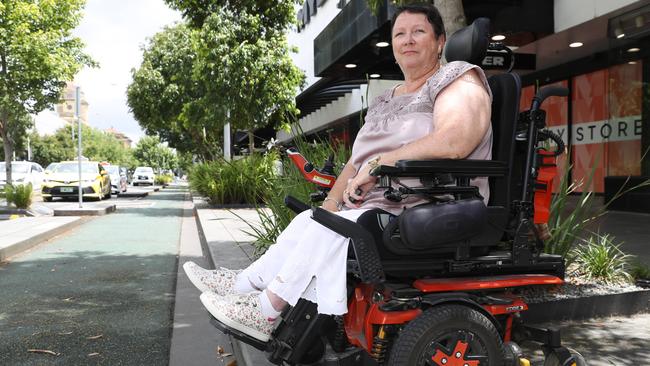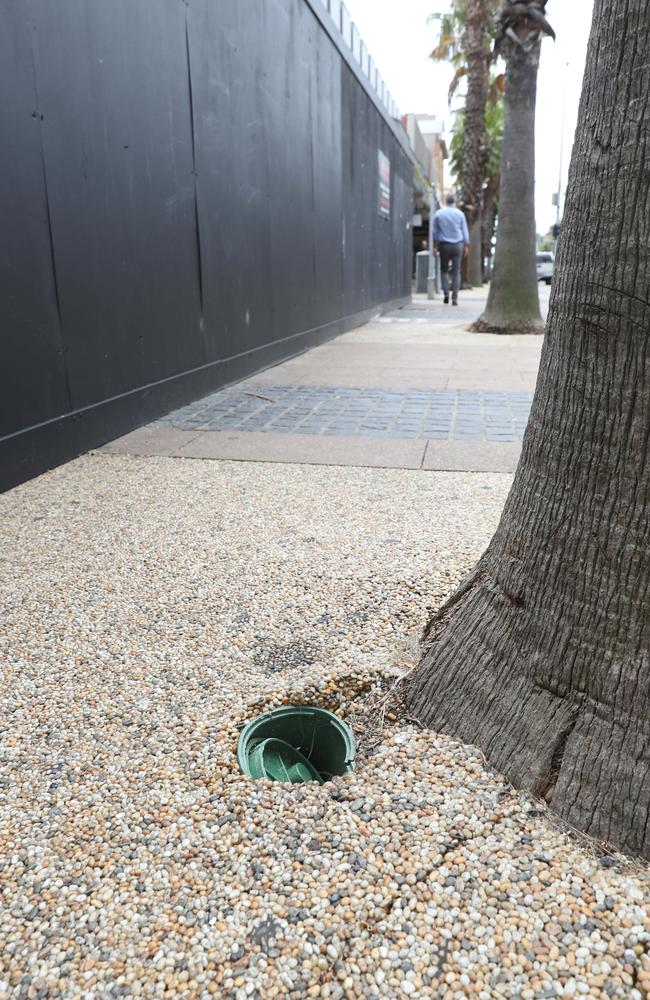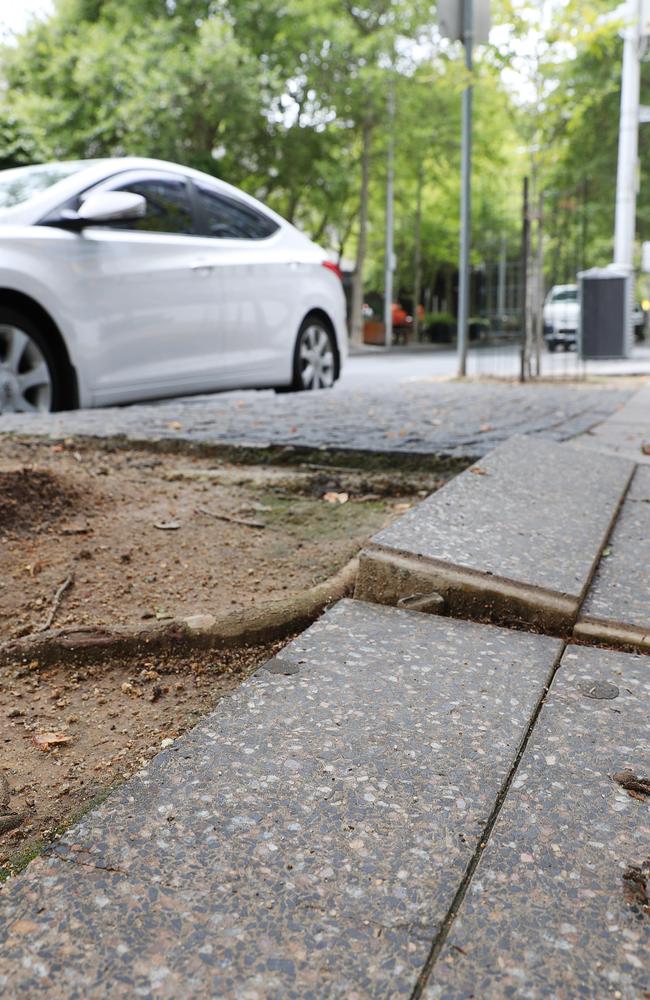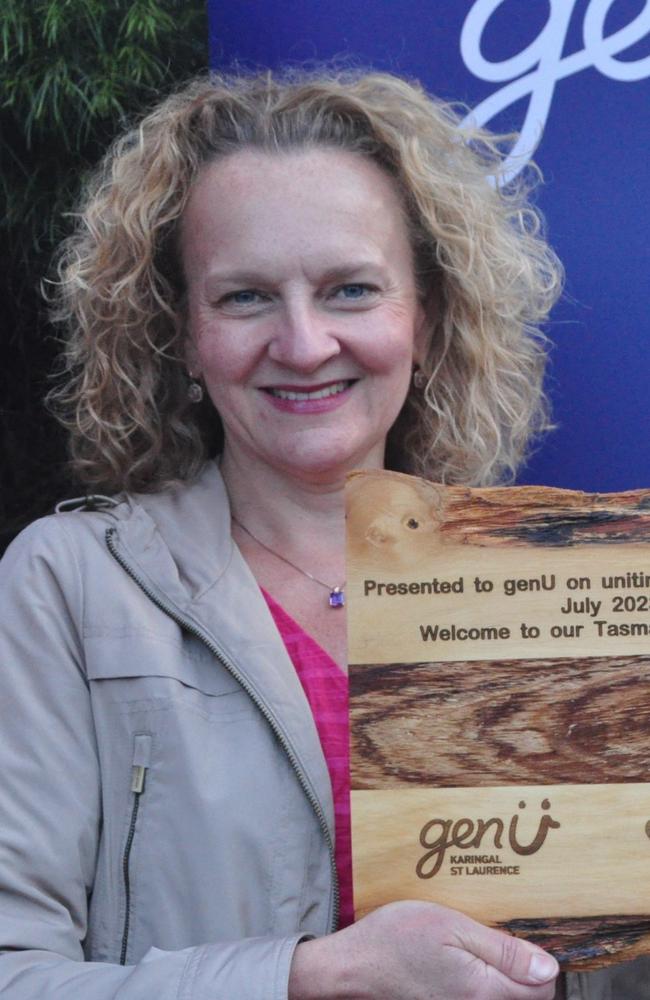Geelong advocate highlights challenges wheelchair users face daily
A Geelong disability advocate has demonstrated how infrastructure presents hurdles to people in wheelchairs, amid concerns the city’s accessibility has gone backwards. WATCH THE VIDEO
Geelong
Don't miss out on the headlines from Geelong. Followed categories will be added to My News.
More people have told a Geelong council survey the city has gone backwards when it comes to accessibility than made progress, as infrastructure means everyday tasks can pose a challenge for those with disability.
Grandmother Lynne Foreman has been in a wheelchair for almost 20 years and has required mobility assistance since she was a child.
She was born with a rare condition called arthrogryposis multiplex congenita, which is associated with stiff or frozen joints.
The 67-year-old human rights advocate agreed to go around the CBD with the Geelong Advertiser to highlight common challenges people with disabilities face.
Mrs Foreman, who lives in genU specialist disability accommodation with her husband in Waurn Ponds, faced a problem that forced her to cross the road mere metres from the Geelong Advertiser office.

Scaffolding outside a Little Malop St construction site at the old Dimmeys store took up most of the pavement, with just a thin slice left between the works and a tree surrounded by a puddle.
She carefully avoids cobblestones and uneven pavement around the city and is constantly looking ahead.
Potholes and indents for infrastructure also posed risk, Mrs Foreman said, as the wheels of her motorised chair could snag.

“We always travel where we know it’ll be smooth,” she said.
In the Little Malop St dining precinct, she said she’d usually stick to wheeling through the middle of the strip, as bustling al fresco areas and signage made squeezing through the footpath difficult.
A requirement of the City of Greater Geelong’s alfresco dining permits is to ensure there is 1.5m distance of footpath access between the property line and the dining structure.

Moving through the Moorabool St bus exchange, she said she often had to weave through people and rubbish in such areas.
And dog poo poses a constant hazard: walkers can take their shoes off at the door, but getting it stuck in your wheels means it can come into your home.
Mrs Foreman usually shops at Westfield, if she comes in to the CBD, because it is familiar.
Her disability makes spontaneity difficult, and relying on taxis to get around and support workers to help get dressed contributes to this.
While there has been much talk about action on accessibility in Geelong in recent years, Mrs Foreman said she had “not really” noticed consistent, concrete change.
Her message to the authorities was simple: “Fix the paths.”
The City of Greater Geelong’s draft Access and Inclusion Plan 2024-28 is being reviewed by the city’s new executive team before proceeding to council for adoption by mid-year.
Amanda Locke, acting executive director of city life at Geelong council, said the new plan would be accompanied by a measurement framework and reporting would occur annually.
Nearly half of the respondents to a survey conducted last year, which will inform the plan, identified as having a disability.
While 36 per cent of respondents felt Greater Geelong was more accessible than it was five years ago, more (38 per cent) felt it was less accessible.
Two-thirds (66 per cent) of people with disability and 90 per cent of those without disability wanted the city to continue improving accessibility in public places and spaces as the most important change, according to a report on the feedback.
Ms Locke said the city was committed to working towards an accessible environment that supported participation and promoted social inclusion.
She said highlights of the city’s work to make Greater Geelong more accessible for people with disability last year included new accessible parking bays, building new facilities to high standards and ongoing footpath, kerb and channel maintenance.
“The Access and Inclusion Advisory Committee met six times in the last 12 months and provided advice on many projects, including major capital works,” Ms Locke said.
“Planning got underway to implement Stage 2 of the Central Geelong Accessibility Improvements Project, which is being delivered by the Revitalising Central Geelong partnership between the Victorian government and the city.
“Works will include the replacement of damaged and dangerous paving, new ramps alongside disabled parking bays and new asphalt to damaged pedestrian surfaces.”
She said the draft Access and Inclusion Plan 2024-28 considered a wide range of reports, community data and community engagement, including recommendations from the Accessible and Inclusive Geelong Feasibility Study.
“The draft plan includes a range of actions that respond to this local study,” Ms Locke said.
The Accessible and Inclusive Geelong Feasibility Study, led by Deakin University’s HOME Research Hub and released in 2019, said: “Higher quality initiatives are needed addressing access and inclusion that actively engage with disability groups or individuals in their approach, assessments and recommendations.”
“Too many plans replicate others without assessment of what worked or did not work,”
it said.
“There is therefore a need to evaluate plans and to set specific targets, objectives and outcomes before another is initiated in order to examine outcomes sustainably and minimise duplication.”
The study received $250,000 in state government funding.
Geelong MP Christine Couzens said a number of local state government funded developments and upgrades provided enhanced access.

Clare Amies, chief executive of Geelong-based disability support organisation genU, applauded council for taking a proactive approach towards improving accessibility.
“People living with disability need to be able to go about their daily life without having to give thought to what may impede their access to their community,” she said.
“This applies to every intersect of life – housing, transport, employment, entertainment, social interaction … the list is endless.
“People with disability share the equal right to access our community with confidence, dignity and ease.”
More Coverage
Originally published as Geelong advocate highlights challenges wheelchair users face daily





